Nuclear Faculty
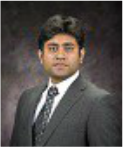
Hitesh Bindra, Ph.D.
Mechanical and Nuclear Engineering
Kansas State University
Dr. Bindra joined the faculty at K-State in January 2014. Previously he taught at University of Utah and worked for Caterpillar and eSolar, Inc. He earned his B.E. in Chemical Engineering from Panjab University Chandigarh, India, and M.S. and Ph.D in Nuclear Engineering from University of Illinois at Urbana Champaign. Areas of specialty: Nuclear reactor safety, nuclearthermal-hydraulics, thermal energy storage, transport theory.
Mechanical and Nuclear Engineering
Kansas State University
Dr. Bindra joined the faculty at K-State in January 2014. Previously he taught at University of Utah and worked for Caterpillar and eSolar, Inc. He earned his B.E. in Chemical Engineering from Panjab University Chandigarh, India, and M.S. and Ph.D in Nuclear Engineering from University of Illinois at Urbana Champaign. Areas of specialty: Nuclear reactor safety, nuclearthermal-hydraulics, thermal energy storage, transport theory.
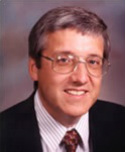
Ronald L. Dougherty, Ph.D.
Mechanical Engineering
University of Kansas
Dr. Dougherty joined the Mechanical Engineering Department at KU in 1999, and served as chair from 1999-2012. He was previously on the faculty at Oklahoma State (1985 – 1999), and worked in industry at Pratt & Whitney (1978 – 1982) and Terra Tek (1982 – 1985). Dr. Dougherty’s areas of research include laser diagnostics, particulate characterization, two-phase fluid flow and heat transfer, power plant thermal modeling, improvement of pumping systems, boiling, and forensic blood spatter. He has been funded by the National Science Foundation, the Nuclear Regulatory Commission, Grundfos Pump Company, Purolator Products, and other industries as well as state agencies. He has published over 30 peer-reviewed articles and has produced over 70 conference papers and reports.
Mechanical Engineering
University of Kansas
Dr. Dougherty joined the Mechanical Engineering Department at KU in 1999, and served as chair from 1999-2012. He was previously on the faculty at Oklahoma State (1985 – 1999), and worked in industry at Pratt & Whitney (1978 – 1982) and Terra Tek (1982 – 1985). Dr. Dougherty’s areas of research include laser diagnostics, particulate characterization, two-phase fluid flow and heat transfer, power plant thermal modeling, improvement of pumping systems, boiling, and forensic blood spatter. He has been funded by the National Science Foundation, the Nuclear Regulatory Commission, Grundfos Pump Company, Purolator Products, and other industries as well as state agencies. He has published over 30 peer-reviewed articles and has produced over 70 conference papers and reports.
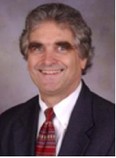
Bill Dunn, Ph.D.
Mechanical and Nuclear Engineering
Kansas State University
Dr. Dunn received his bachelor's degree in electrical engineering from the University of Notre Dame. He went on to receive both his master's degree and doctorate in nuclear engineering from North Carolina State University. Dr. Dunn, professor of mechanical and nuclear engineering at Kansas State University, is supported by the Marine Corps to develop a way to improve bomb detection without having to get in close proximity to suspicious containers such as cars, knapsacks, briefcases, etc., that may conceal explosives. Before coming to K-State in 2002, Dunn served as president of Quantum Research Services Inc., which developed specialized products and services.
Mechanical and Nuclear Engineering
Kansas State University
Dr. Dunn received his bachelor's degree in electrical engineering from the University of Notre Dame. He went on to receive both his master's degree and doctorate in nuclear engineering from North Carolina State University. Dr. Dunn, professor of mechanical and nuclear engineering at Kansas State University, is supported by the Marine Corps to develop a way to improve bomb detection without having to get in close proximity to suspicious containers such as cars, knapsacks, briefcases, etc., that may conceal explosives. Before coming to K-State in 2002, Dunn served as president of Quantum Research Services Inc., which developed specialized products and services.
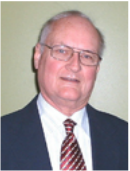
Carl E. Frahme, Ph.D.
Mechanical Engineering
University of Kansas
Dr. Carl Frahme received a B.S. in metallurgical engineering from Case Institute of Technology (now Case Western Reserve University) in 1962 and a Ph.D. in Ceramic Science and Engineering from Rutgers- The State University (NJ) in 1967. He has over forty years of experience in industry, including management, engineering, product development, R&D, marketing and sales. He was co-founder of Ceramic Correspondence Institute, offering practical education in ceramic technology, and has taught at UCLA, Pasadena City College, and The Center for Professional Advancement. He has given short courses for The American Ceramic Society and ASM International.
Mechanical Engineering
University of Kansas
Dr. Carl Frahme received a B.S. in metallurgical engineering from Case Institute of Technology (now Case Western Reserve University) in 1962 and a Ph.D. in Ceramic Science and Engineering from Rutgers- The State University (NJ) in 1967. He has over forty years of experience in industry, including management, engineering, product development, R&D, marketing and sales. He was co-founder of Ceramic Correspondence Institute, offering practical education in ceramic technology, and has taught at UCLA, Pasadena City College, and The Center for Professional Advancement. He has given short courses for The American Ceramic Society and ASM International.
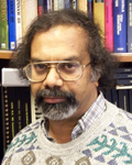
Tushar K. Ghosh, Ph.D.
Nuclear Science and Engineering Institute
University of Missouri - Columbia
B.S. Jadavpur University, Jadavpur, India, Chemical Engineering, 1980
M.S. University of Calgary, Calgary, Alberta, Canada, Chemical Engineering, 1985
Ph.D. Oklahoma State University, Stillwater, Oklahoma, Chemical Engineering, 1989
Research Interests: Mass and Heat Transfer; Hight temperature adsorption; Treatment of Radioactive and Mixed Wastes (organic and inorganic hazardous waste mixtures).
Nuclear Science and Engineering Institute
University of Missouri - Columbia
B.S. Jadavpur University, Jadavpur, India, Chemical Engineering, 1980
M.S. University of Calgary, Calgary, Alberta, Canada, Chemical Engineering, 1985
Ph.D. Oklahoma State University, Stillwater, Oklahoma, Chemical Engineering, 1989
Research Interests: Mass and Heat Transfer; Hight temperature adsorption; Treatment of Radioactive and Mixed Wastes (organic and inorganic hazardous waste mixtures).
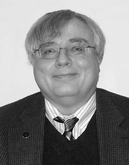
Mark Prelas, Ph.D.
Nuclear Science and Engineering Institute
University of Missouri - Columbia
Mark Prelas is internationally known for his work in diamond, wide-band gap materials, ion driven lasers, and nuclear energy conversion. He is a professor of nuclear engineering and director of research at MU's Nuclear Science and Engineering Institute, which was ranked No. 1 in faculty scholarly productivity by The Chronicle of Higher Education in 2007. Author of Non-Proliferation Issues for Weapons of Mass Destruction, he holds 19 U.S. and international patents and has published more than 200 articles, 8 books, and given more than 150 presentations. Earlier this year he received the Glenn Murphy Award from the American Society for Engineering Education for his contributions to teaching and research in nuclear engineering. In 2008 he was the first recipient of the international Frederic Joliot-Curie Medal for his lifetime achievements in energy research. He has been a leader in fostering relationships with scientists in the former Soviet Union. He was a Presidential Young Investigator Award recipient in 1984 and a Fulbright Fellow in 1992. He was elected a fellow of the American Nuclear Society in 1998 and a Foster fellow for the Bureau of Arms Control at the U.S. State Department in 1999 where he served as a science advisor.
Nuclear Science and Engineering Institute
University of Missouri - Columbia
Mark Prelas is internationally known for his work in diamond, wide-band gap materials, ion driven lasers, and nuclear energy conversion. He is a professor of nuclear engineering and director of research at MU's Nuclear Science and Engineering Institute, which was ranked No. 1 in faculty scholarly productivity by The Chronicle of Higher Education in 2007. Author of Non-Proliferation Issues for Weapons of Mass Destruction, he holds 19 U.S. and international patents and has published more than 200 articles, 8 books, and given more than 150 presentations. Earlier this year he received the Glenn Murphy Award from the American Society for Engineering Education for his contributions to teaching and research in nuclear engineering. In 2008 he was the first recipient of the international Frederic Joliot-Curie Medal for his lifetime achievements in energy research. He has been a leader in fostering relationships with scientists in the former Soviet Union. He was a Presidential Young Investigator Award recipient in 1984 and a Fulbright Fellow in 1992. He was elected a fellow of the American Nuclear Society in 1998 and a Foster fellow for the Bureau of Arms Control at the U.S. State Department in 1999 where he served as a science advisor.

